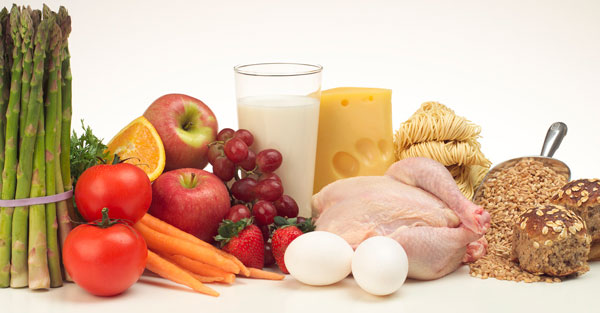Constipation is a common problem that affects nearly everyone. The bloating and straining over the toilet are not only comfortable, but it also has the potential to ruin an entire day. Elderly citizens are more prone to developing constipation due to advancing age, inactivity or muscular dysfunction.
Constipation can be caused by various reasons, including inactivity, dependence on laxatives, eating foods with way less fiber than recommended. Subsequently, the gut transit time of the stool is reduced. Thus, while some food can help reduce the risk of constipation, others can worsen it. Here is a list of such foods
1. Fried or Fast Foods
Frequently indulging in fast foods increases the risk of constipation. This is because such foods are mostly high in fat and low in fiber. For example, if you consume a large portion of fast food, you will be reducing the number of vegetables, legumes, fruits, and grains that you may eat at the same time. They also contain more salt, which makes your body take up more water from the intestines. This can easily lead to constipation.
2. Unripe Bananas
Unripe bananas contain a lot of resistant starch and tannins, compounds that are harder to digest and increase the time food takes in going through the gut. As bananas turn ripe, this starch is converted into easily digestible natural sugars. Yellow, ripe bananas can help in relieving constipation but unripe ones do just the opposite.
3. Dairy Products
Another common cause of constipation, dairy gives rise to a number of associated symptoms. Children, especially toddlers and infants, are at a greater risk as many kids are sensitive to cow’s milk. You can consider replacing it with soy milk or any kind of milk your doctor recommends.
Then there are people who are lactose intolerant and suffer from diarrhea if they consume dairy. Having or avoiding dairy is a personal choice based on the effect it has on the body.
4. Processed Grains
Products such as white bread, white pasta, and white bread are less nutritious and may cause constipation as they are made from processed grains. As most of the fiber-containing part is removed in processing them, the gut transit time increases. The bran part of wheat flour is especially rich in fiber and adds bulk to stool.
Thus, replacing processed grains with whole grains can go a long way in avoiding constipation. However, if you are already consuming a lot of fiber then eating more might not help much.
5. Alcohol
One of the most common causes of constipation, alcohol can interfere with the digestive system. Drinking alcohol in large amounts flushes a lot of water in the body in the form of urine. Due to poor hydration, the stools harden up, causing pain or discomfort. However, studies are yet to find any direct relation between alcohol and constipation.
In fact, many people complained of diarrhea instead of constipation after a night of alcohol indulgence. Thus, the effect may vary. If it causes constipation, pace your drinks with a non-alcoholic beverage.
6. Red Meat
With little fiber, red meat is a major cause of constipation in red meat lovers. Due to low fiber content, the stool takes longer to travel through the gut. Also, it indirectly reduces the fiber percentage consumed by a person in one day.
Also, there is more fat in red meat in comparison to poultry and fish, which takes more time to digest, thereby increasing the time the food spends in the system. This, more often than not, increases the risk of constipation. To remedy this, you can reduce the intake of red meat and include more fiber-rich and proteinaceous foods like beans, peas and some types of lentils.
Conclusion!
Having less than 3 bowel movements per week is considered a definitive sign of constipation. As many as 27% of adults experience constipation along with symptoms like gas and bloating. Also, while intervention is possible, precaution is always better than cure.
On the other hand, laxatives are best in low amounts. Frequent or everyday use of laxatives can lead to dependency, further complicating the condition. Eating the above-mentioned foods in moderate amounts and including more fiber in the diet can help with constipation. Drinking plenty of water can also help in meeting that end.
